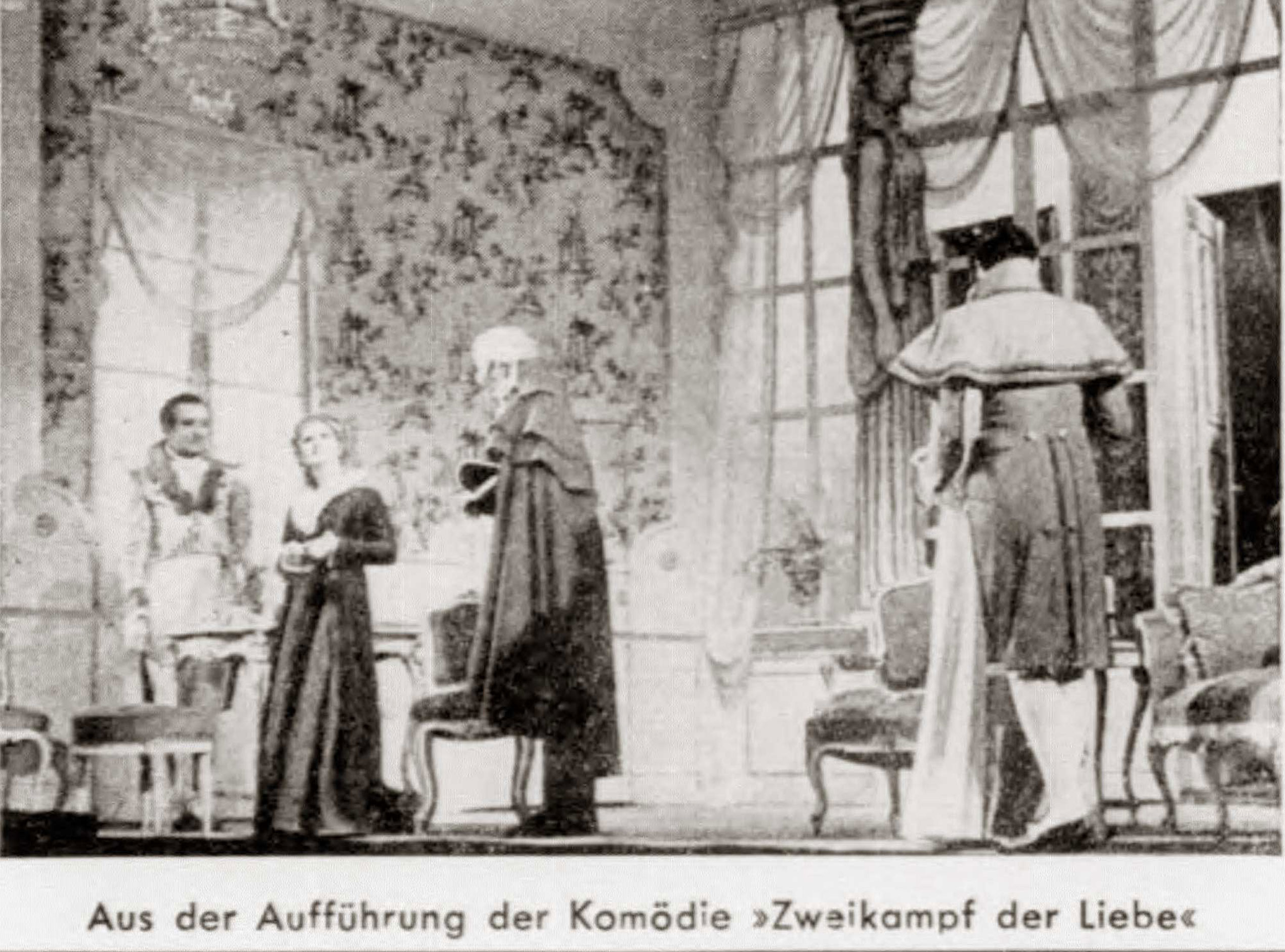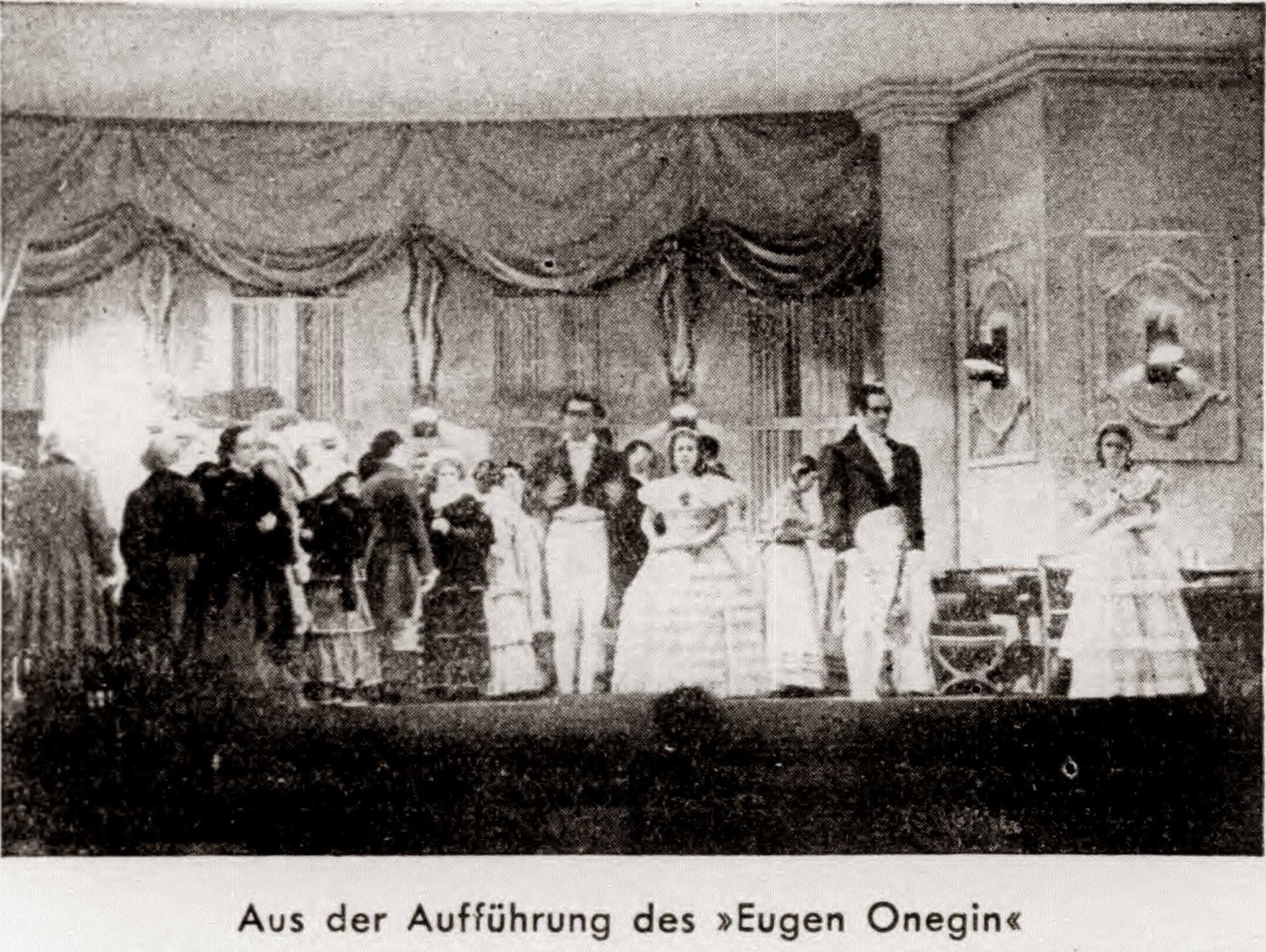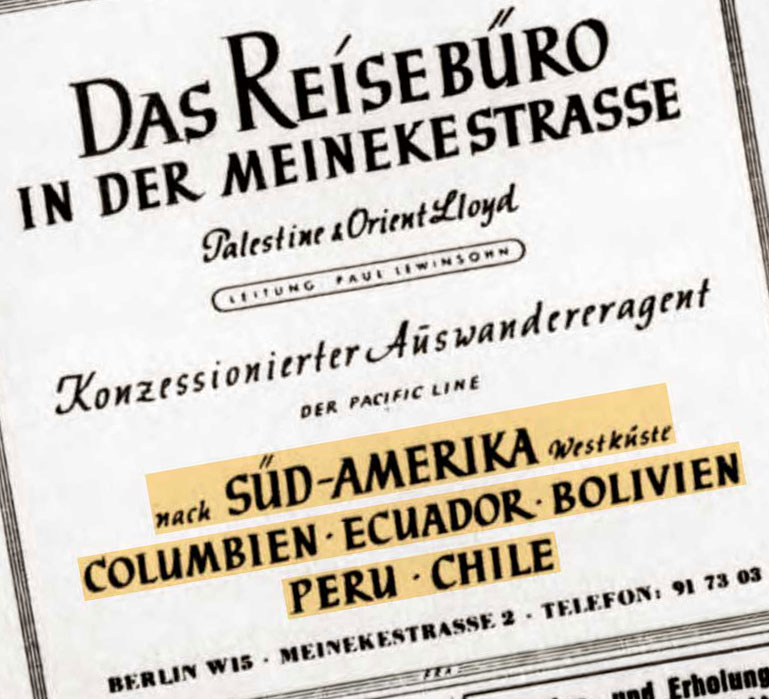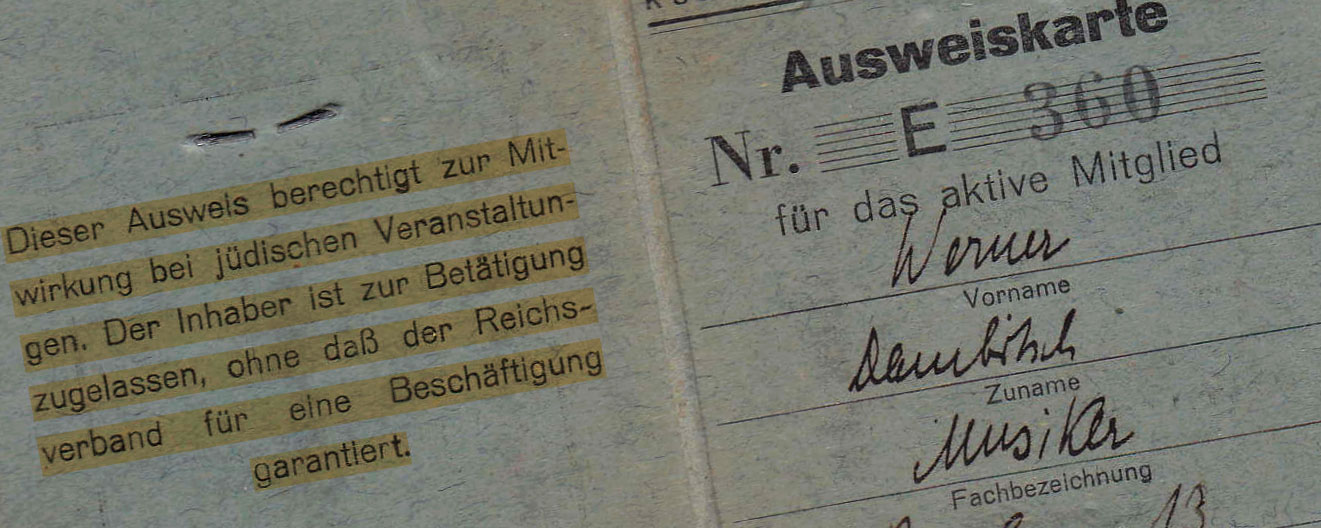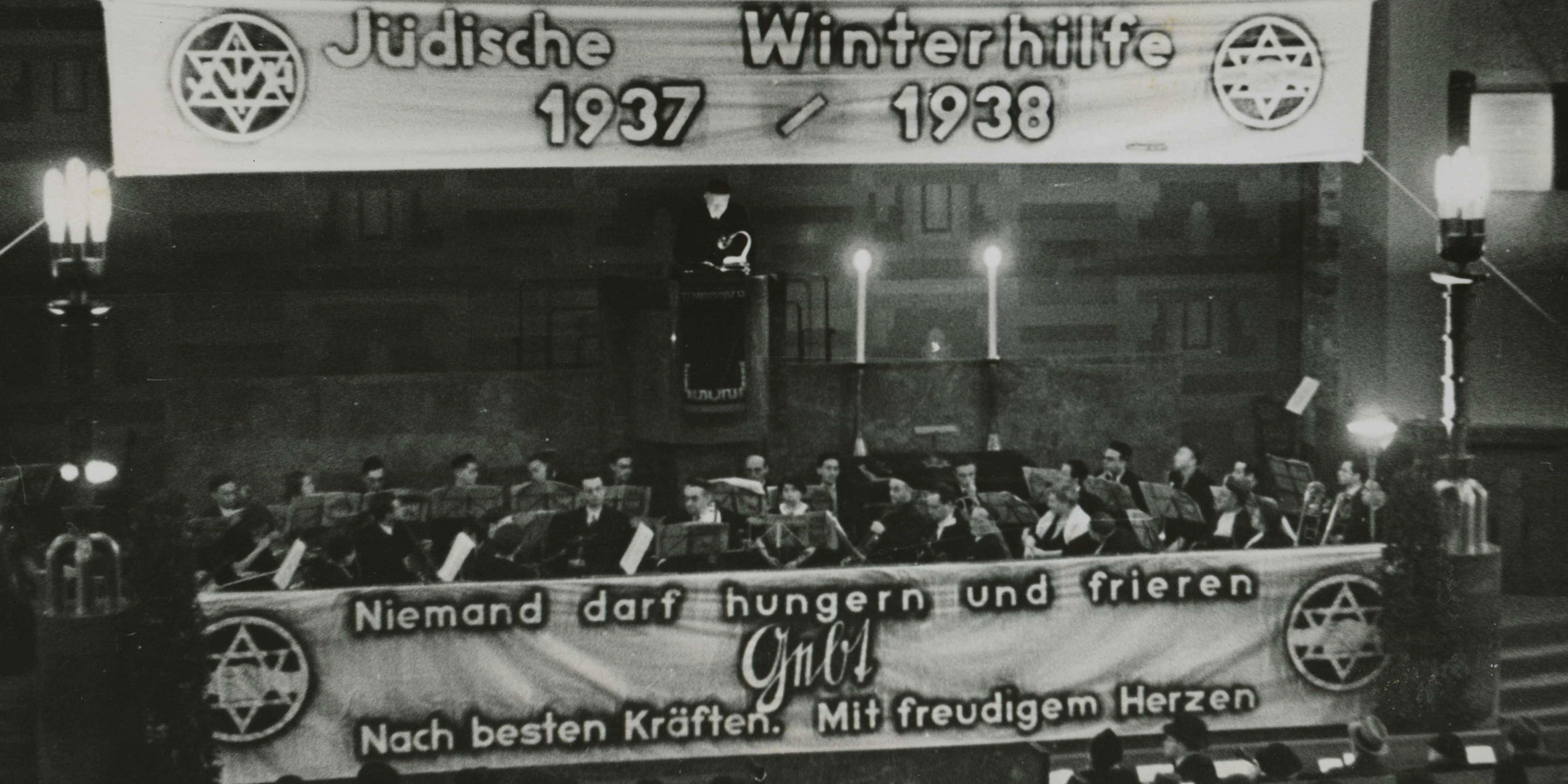The noose tightens
The Reichsvertretung der Deutschen Juden appeals to the government
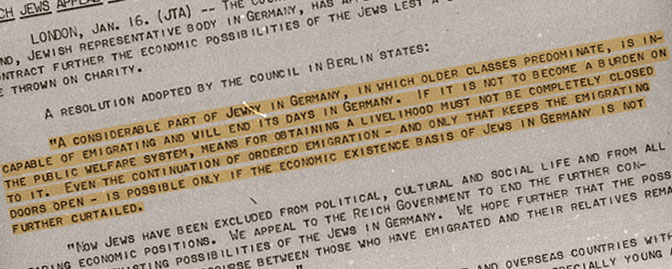
A considerable part of Jewry in Germany, in which older classes predominate, is incapable of emigrating and will end its days in Germany. If it is not to become a burden on the public welfare system, means for obtaining a livelihood must not be completely closed to it. Even the continuation of ordered emigration—and only that keeps the emigrating doors open—is possible only if the economic existence basis of Jews in Germany is not further curtailed.
Berlin
The “Reichsvertretung der Deutschen Juden” (Reich Representation of German Jews) was established in Berlin in September 1933 as an advocacy group. After the passing of the Nuremberg Laws, it had to change its name to “Reichsvertretung der Juden in Deutschland” (Reich Representation of Jews in Germany). Its president was Rabbi Leo Baeck. As a result of the increasing pauperization of the Jewish population, whose possibilities to earn a living were systematically taken away, the Reichsvertretung appealed to the government in January 1938 to desist from additional limitations depriving Jewish professionals of their jobs. The Reichsvertretung argued that not only was the increasing unemployment a burden on the welfare system, but it also made emigration impossible.
SOURCE
Institution:
Collection:
"Reich Jews Appeal to Government Against Further Economic Curbs" 
Source available in English








































